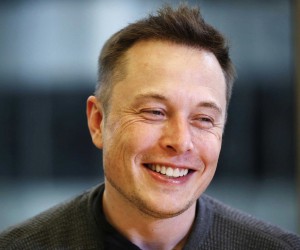
BMW put to bed rumors of plans to tie up with Tesla, just weeks after Elon Musk suggested the possibility.
It can be a challenge deciphering the constant flow of tweets and blog posts emerging from Tesla Motors’ Silicon Valley headquarters, especially those penned by CEO Elon Musk. And there have been plenty of questions raised about a recent revelation that Tesla was talking to Germany’s BMW about a possible alliance deal.
Whether there were ever any real discussions is far from clear, but what is indisputable is that BMW has formally ruled out any plans to cooperate with the ambitious California battery-carmaker.
After a spokesman initially downplayed such a possibility, suggesting BMW frequently talks to possible partners, senior officials made it clear in an interview with the German business magazine, Wirtschaftswoche, that they aren’t interested. And by that, they explained, there would be no alliance, nor any acquisition of Tesla stock by the Bavarian maker.
CEO Musk’s comments came, coincidentally enough, just weeks after another German maker, BMW’s arch-rival Daimler AG, announced it would sell off its stake in Tesla – at a significant profit considering the huge run-up in Tesla stock over the last year or so.
That was one of several recent setbacks for the battery-carmaker which has also seen long-time partner Toyota Motor Co. end production of the RAV4-EV electric vehicle which used a Tesla drivetrain. And though Musk has insisted that his company is working with Toyota on future projects, the Japanese maker has made it clear it sees hydrogen fuel-cell technology, rather than battery-electric propulsion, as the zero-emissions future.
For its part, Daimler says it plans to keep working with Tesla on future product programs. They’re partners on the current Mercedes-Benz B-Class electric, for one thing.
But Tesla’s broad ambitions would suggest it needs more partners. So would its decision to set up the so-called Gigafactory, a $5 billion factory going into Nevada that is set to become the world’s largest lithium-ion battery plant. Even if Tesla can meet its aggressive sales targets with the planned Model III sedan, the Gigafactory is likely to have plenty of excess capacity to supply other customers.
Another possible benefit would be gaining access to the so-called Supercharger networks of Level III chargers Tesla is setting up across the country.
(Tesla may collaborate with BMW. For more, Click Here.)
With its own ambitious plans for the new BMW i sub-brand, the Bavarian maker might seem an equally logical partner for Tesla. Indeed, it might need to find partners interested in using some of the carbon fiber produced at its factory in Washington State. That plant will soon triple its own capacity.
(Click Here for details about why motorists aren’t planning to buy autonomous vehicles.)
Carbon fiber is extremely lightweight, something that could help improve both the range and performance of Tesla vehicles.
(To see more about the UAW’s labor law victory over Mercedes in Alabama, Click Here.)
Whether there was ever anything more than a polite and informal conversation between Tesla and BMW is unclear. Musk has never been shy about signaling news that could enhance perceptions about his company.
But BMW doesn’t appear willing to help a start-up that could become one of its biggest rivals in the emerging field of luxury electric vehicles.

Have you ever noticed Elon Musk doesn’t look at people eye-to-eye or eye to camera?